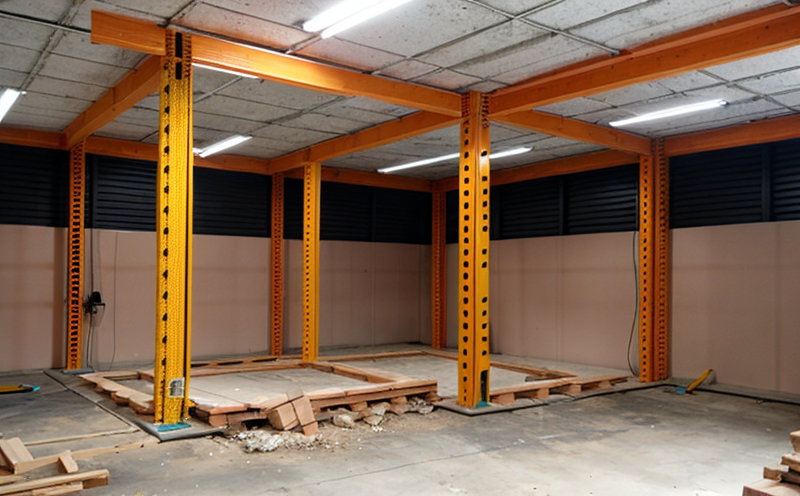Verifying that materials used for structural support meet the required density for optimal strength
The Critical Importance of Verifying Material Density for Optimal Structural Support
In the world of construction and engineering, the safety and durability of structures are of utmost importance. One crucial aspect that often goes unnoticed is the material density used for structural support. Even a slight deviation from the recommended density can compromise the integrity of the structure, leading to catastrophic consequences. This is where Eurolabs laboratory service comes into play verifying that materials used for structural support meet the required density for optimal strength.
In this article, we will delve into the significance of material density in structural support and explore the benefits of using Eurolabs laboratory services to ensure compliance with industry standards.
What is Material Density?
Material density refers to the mass per unit volume of a substance. In the context of construction materials, it is essential to determine their density to guarantee that they can withstand various loads and stresses without compromising the structural integrity. The density of building materials affects their ability to resist compressive forces, bending moments, and shear forces.
Why is Verifying Material Density Essential?
Verifying material density for optimal strength is crucial for several reasons
Safety A structures stability depends on its material density. If the density is too low, it may not be able to withstand external loads, posing a significant safety risk.
Durability Materials with inadequate density may degrade faster than expected, leading to premature failure and costly repairs.
Compliance Industry standards dictate specific requirements for material density. Non-compliance can result in fines, reputational damage, and even business closure.
Advantages of Using Eurolabs Laboratory Service
By choosing Eurolabs laboratory service, you can enjoy numerous benefits
Key Benefits
Accurate Results Our state-of-the-art equipment ensures precise measurements, providing you with reliable data to inform your decisions.
Compliance Assurance We guarantee that our results meet industry standards, reducing the risk of non-compliance and its associated consequences.
Cost Savings By detecting potential issues early on, we help you avoid costly repairs, replacements, or even business closure.
Time Efficiency Our laboratory service streamlines the testing process, saving you time and resources that can be allocated to core activities.
How Does Eurolabs Service Work?
Our laboratory service is designed to be user-friendly and efficient
Sample Submission Send your samples to our laboratory for analysis.
Testing Our experts conduct the necessary tests using state-of-the-art equipment.
Reporting We provide you with detailed reports, including test results and recommendations.
Why Choose Eurolab?
At Eurolab, we pride ourselves on
Expertise Our team consists of highly skilled professionals with extensive experience in material testing.
State-of-the-Art Equipment We invest heavily in the latest technology to ensure accurate and reliable results.
Customer-Centric Approach We prioritize your needs, providing personalized support throughout the process.
Frequently Asked Questions
Q What types of materials can Eurolab test?
A Our laboratory service covers a wide range of construction materials, including concrete, steel, wood, and more.
Q How long does the testing process take?
A The duration of our testing services varies depending on the type of material and the complexity of the analysis. However, we strive to provide results within a reasonable timeframe.
Q Can I request specific tests or analyses?
A Yes, please inform us about your specific requirements, and we will tailor our service to meet your needs.
Conclusion
Verifying that materials used for structural support meet the required density for optimal strength is a critical aspect of construction and engineering. By partnering with Eurolab, you can ensure compliance with industry standards, guarantee safety, and optimize material performance. Dont compromise on the integrity of your structures choose Eurolabs laboratory service today.
Additional Resources
To learn more about our services or to schedule a consultation, please visit our website at Your Website URL.
-
Testing the mass per unit volume of construction materials to determine their density
-
Evaluating the density of materials like concrete, metals, and composites for their suitability in construction
-
Simulating different temperature conditions to assess how density is affected by environmental changes
-
Testing the density of materials to verify their strength and structural integrity
-
Verifying the consistency of material density for uniformity in production and quality control
-
Assessing how the density of materials influences their thermal conductivity and insulation properties
-
Testing the impact of density on the overall weight and load-bearing capacity of construction materials
-
Ensuring that materials with specific density requirements, such as for fire resistance or insulation, meet industry standards
-
Simulating material conditions under extreme temperature and pressure to see how density affects performance
-
Testing materials like insulation and foam for lightweight and effective density performance
-
Verifying the density of materials used for floors, walls, and ceilings to ensure stability and structural strength
-
Testing for variations in density that could impact the material’s structural properties or performance
-
Evaluating the effect of density on materials’ acoustic properties and soundproofing qualities
-
Testing for how variations in density can impact the thermal expansion of materials in construction
-
Assessing the relationship between density and the material’s ability to absorb impact or stress
-
Verifying the consistency of material density across different batches for reliable performance in construction
-
Simulating how high-density materials behave under pressure compared to lower-density materials
-
Testing the impact of moisture absorption or other environmental factors on the density of construction materials
-
Testing how the density of materials like wood, cement, or steel influences their strength and performance in construction
-
Assessing the relationship between material density and durability in extreme environmental conditions
-
Ensuring that materials with low density, such as lightweight aggregates, provide sufficient strength for construction applications




